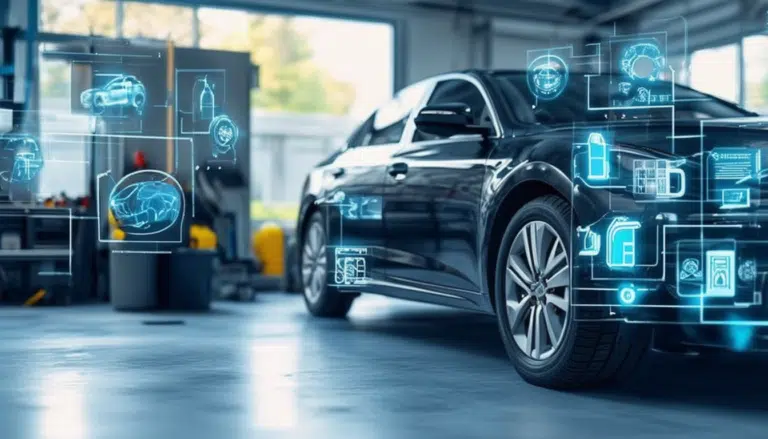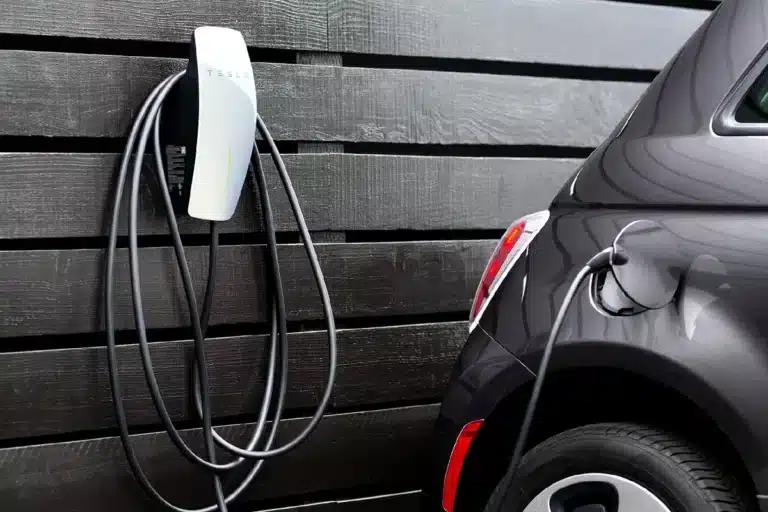Causes of high fuel consumption due to lack of maintenance
The high fuel consumption is a problem that affects many drivers and is often amplified by the lack of proper maintenance of vehicles. Mechanical deficiencies, poor driving practices, and neglect in regular services can lead to a significant increase in gasoline expenses, generating not only a negative economic impact but also environmental consequences. Understanding the main causes behind this phenomenon is crucial to optimizing vehicle performance and reducing its ecological footprint.
The high fuel consumption in vehicles is a problem that affects many drivers and can be largely attributed to the lack of proper maintenance. Throughout this article, the main causes that contribute to this phenomenon will be explored, as well as the importance of keeping vehicles in optimal condition to ensure their efficiency and reduce environmental impact.
Inadequate driving style
One of the factors that can increase fuel consumption is an inappropriate driving style. Getting used to sudden accelerations, abrupt braking, and speeding not only is detrimental to safety but also forces the engine to work inefficiently. Adopting smoother driving habits and anticipating actions on the road can result in significant fuel savings.
Common mechanical problems
The lack of maintenance in essential mechanical aspects can lead to excessive fuel consumption. Among the most common problems are:
Clogged filters
Air and fuel filters play a crucial role in engine performance. A clogged filter can decrease the flow of air or fuel, causing the engine to consume more to maintain its operation. Regular changes in the filters are essential to avoid this condition.
Worn spark plugs
The spark plugs responsible for igniting the fuel can lose efficiency over time. Defective spark plugs cause incomplete combustion, resulting in higher gasoline consumption. Keeping this component in good condition is essential to optimize engine performance.
Inappropriate engine oil
Using low-quality or incorrect viscosity engine oil can drastically affect engine efficiency. Proper lubrication is crucial for the smooth operation of internal parts, and its absence leads to increased friction, which translates into higher fuel consumption.
Brake system failures
Problems in the brake system, such as poor brake return, can create additional resistance to the vehicle’s motion. This increases the engine’s load, which raises fuel consumption. Regular maintenance of the brake system components is essential not only for safety but also for consumption efficiency.
Effects of air conditioning and heating
The use of air conditioning and vehicle heating can amplify the load on the engine, becoming another common cause of high fuel consumption. It is advisable to use these systems moderately and to check that they are in optimal condition to avoid unnecessary consumption.
Influence of tire maintenance
Improperly inflated or worn tires affect fuel economy. Tires with inadequate pressure create more effort when rolling, leading to increased consumption. Performing periodic checks on tire pressure and condition is essential to maintain optimal fuel expenditure.
Impact of fuel injectors
Dirty or damaged fuel injectors are one of the most common problems that affect a vehicle’s efficiency. If the injectors do not function correctly, the engine does not receive the appropriate amount of fuel, resulting in increased consumption. Cleaning or replacing the injectors is an effective measure to solve this problem.
Exhaust system maintenance
A poorly functioning exhaust system can obstruct gas flow, creating an overload on the engine and thus higher fuel consumption. Performing routine inspections and keeping the exhaust system in optimal condition is important not only for economy but also to reduce environmental pollution.
The importance of preventive maintenance
Implementing a preventive maintenance plan helps prevent future problems and keep the vehicle in optimal condition. Simply scheduling regular checks and small repairs can make a significant difference in fuel consumption and the vehicle’s lifespan.
For more information on how to reduce fuel consumption through proper maintenance of your vehicle, resources such as effective tips for measuring and reducing consumption can be consulted, offering practical guidance that can be very helpful.
For individuals interested in other savings strategies, carpooling presents itself as a viable alternative, as well as considering maintenance practices that optimize energy efficiency.
Additionally, those interested in learning more about efficient engines and their functioning can discover information on the most powerful engine on the planet and its innovations.
Finally, for companies seeking to reduce their fuel expenses, sharing experiences and savings techniques is key. An example of this is presented in business strategies for savings.
The high fuel consumption is a common problem that many drivers face, and much of this problem can be attributed to the lack of proper maintenance of vehicles. There are various reasons why a car may consume more gasoline than expected, and many of these are directly related to maintenance aspects that are often overlooked.
One of the most critical factors is the condition of the air and fuel filters. A clogged filter limits the airflow necessary for the engine to operate efficiently, forcing it to work harder and, therefore, consume more fuel. Another relevant component is the spark plugs; when they are worn, they cause incomplete combustion, which not only reduces engine performance but also leads to increased gasoline consumption.
Moreover, the condition of the brake system can have a significant impact on fuel expenditure. If the brakes are not in optimal condition, they can create additional resistance, forcing the engine to work harder to move the vehicle. Engine lubrication also plays an essential role; using inappropriate oil or lacking oil increases internal friction, which again results in higher consumption.
Finally, inefficient driving behaviors, such as abrupt acceleration and constant braking, exacerbate this problem. However, all these causes are avoidable with proper preventive maintenance. Adopting a routine that includes regular checks and changes of essential parts is crucial to optimizing fuel consumption and reducing operating costs.





